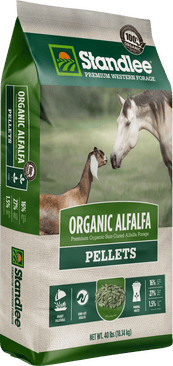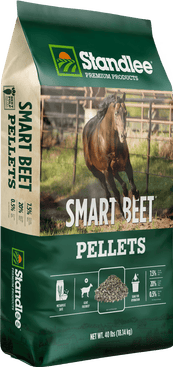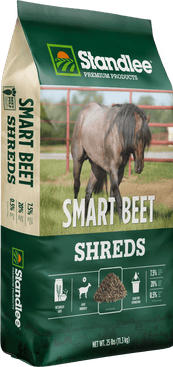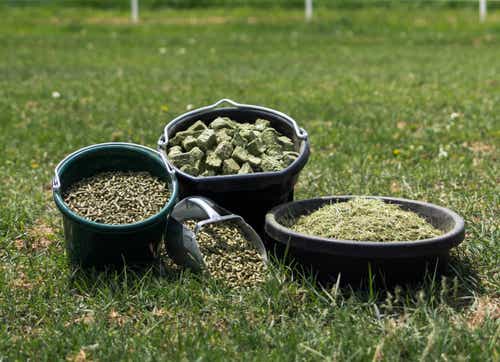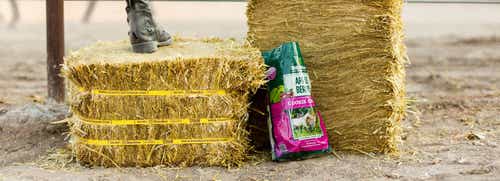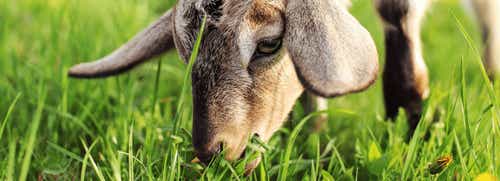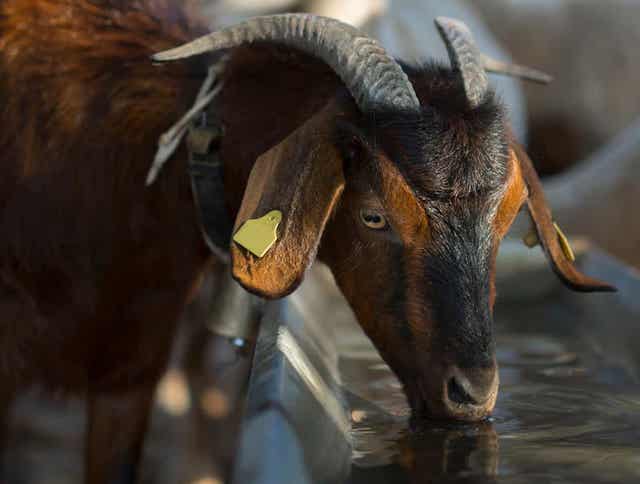
Understanding Goat Dehydration: Causes, Symptoms, and Solutions
At Standlee, we’re passionate about helping livestock owners care for their animals with confidence, and that includes our goat-loving community. Whether you raise dairy goats, meat goats, or a backyard herd, understanding goat dehydration and how to prevent it is key to your animals’ wellbeing, especially during the hotter months.
Goat hydration in summer heat is more than just keeping water buckets full. It’s about creating the right environment, feeding the right forage, and staying alert to the signs your goat might be in distress. In this article, we’ll walk you through what causes dehydration, how to spot it early, and what you can do to help your goats stay hydrated, healthy, and thriving.
What Causes Dehydration in Goats?
Dehydration in goats can occur year-round, but it’s especially common during the summer. Knowing how to support goat hydration in summer heat is critical during long stretches of high temperatures and humidity.
Heat Stress & Humidity
Goats don’t sweat effectively, so when temperatures soar, they can quickly lose fluids through panting and respiration. Goats exposed to direct sun without access to shade or kept in poorly ventilated shelters are at much higher risk of dehydration. One of the best summer care tips for goats in hot climates is to provide continuous access to shade, airflow, and cool, clean water.
Health Conditions
Issues like diarrhea (scours), internal parasites, or bacterial infections can lead to rapid fluid loss. These conditions are especially dangerous in warm weather, when the risk of goat dehydration is already elevated. Stay proactive with health checks and parasite control.
Water Access & Palatability
Goats are picky drinkers. They may turn up their noses at stale, dirty, or unfamiliar water sources. Make sure they always have access to cool, clean water - especially during heat waves, after kidding, or while traveling.
Signs of Dehydration in Goats
Early detection is key. If you notice any of the following signs, your goat may be dehydrated:
- Dry mouth or tacky gums
- Sunken eyes
- Lethargy or weakness
- Reduced appetite or interest in hay
- Thick, sticky saliva
- Decreased urination
QUICK TIP – Use the skin pinch test. Gently pinch the skin at the base of the goat’s neck - if it is slow to return to normal, dehydration is likely.
Rehydration Tips That Work
If you suspect your goat is dehydrated, don’t wait. Take these steps to help them rehydrate safely:
Offer Electrolytes
Electrolyte solutions are a great first step to restore mineral balance and encourage fluid intake. You can buy a commercial goat electrolytes or create your own by mixing:
- 1 tablespoon goat-safe salt
- 1 tablespoon baking soda
- 1 cup sugar (per gallon of clean water)
Always offer plain water alongside the electrolyte mix so goats can choose what they need.
Go Slow, Monitor Closely
Avoid overwhelming your goat with large amounts of water all at once. Offer small, frequent sips and monitor for signs of improvement - energy, appetite, and alertness.
Know When to Call the Vet
If your goat is unresponsive, refuses to drink, or is battling persistent scours, reach out to your veterinarian immediately. Goat dehydration can escalate quickly without intervention.
Can Forage Help With Hydration?
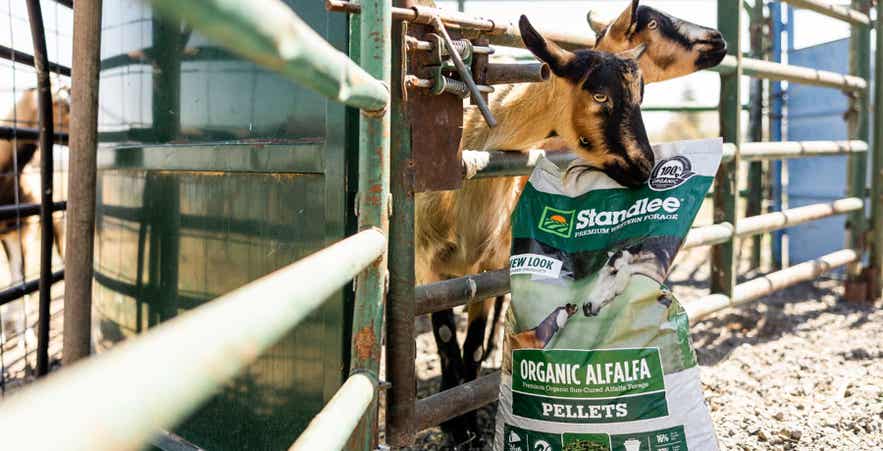
Absolutely. Feeding forage with higher fiber and moisture retention can support hydration by encouraging saliva production and improving digestion. Many goat owners ask: Is beet pulp good for goats?
Yes - beet pulp (especially when soaked) is a great option for goats needing extra hydration or weight support. It’s highly digestible, palatable, and can help increase moisture intake during hot weather. Standlee offers high-quality beet pulp shreds and pellets that are easy to feed and perfect for summer nutrition strategies.
Keep Your Herd Hydrated Year-Round
At Standlee, we know that hydration is the foundation of good health - not just during a heatwave, but every day. A well-hydrated goat is better able to digest forage, regulate body temperature, and resist illness.
Here are a few final summer care tips for goats:
- Provide water in multiple shaded, tip-proof containers
- Feed high-quality forage, like Organic Alfalfa Pellets, which support digestive and hydration needs
- Keep goats cool with ventilated shelters and access to shade
At Standlee, we’re more than just forage - we’re your partner in herd health. If you ever have questions about goat nutrition, hydration, or choosing the right forage, our team is here to help.

